Amazon Web Services - Machine Learning | Introduction to Amazon Web Services(AWS) - Software Development PDF Download
Amazon Machine Learning is a service that allows to develop predictive applications by using algorithms, mathematical models based on the user’s data.
Amazon Machine Learning reads data through Amazon S3, Redshift and RDS, then visualizes the data through the AWS Management Console and the Amazon Machine Learning API. This data can be imported or exported to other AWS services via S3 buckets.
It uses “industry-standard logistic regression” algorithm to generate models.
Types of Tasks Performed by Amazon Machine Learning
Three different types of tasks can be performed by Amazon Machine learning service −
A binary classification model can predict one of the two possible results, i.e. either yes or no.
A multi-class classification model can predict multiple conditions. For example, it can track a customer's online orders.
A regression model results in an exact value. Regression models can predict the best-selling price for a product or the number of units that will sell.
How to Use Amazon Machine Learning?
Step 1 − Sign in to AWS account and select Machine Learning. Click the Get Started button.
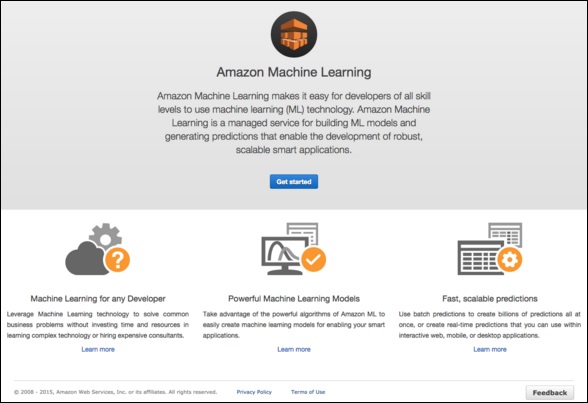
Step 2 − Select Standard Setup and then click Launch.

Step 3 − In the Input data section, fill the required details and select the choice for data storage, either S3 or Redshift. Click the Verify button.
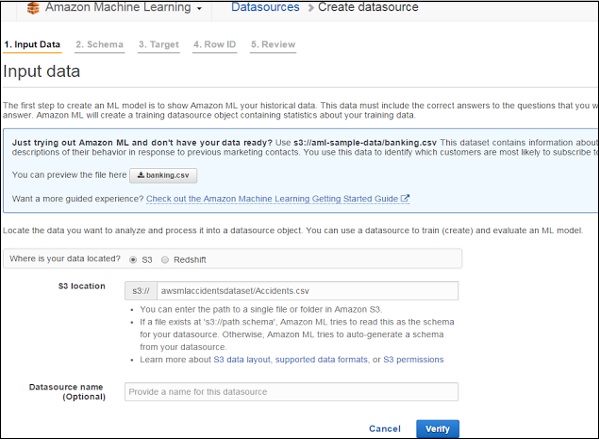
Step 4 − After S3 location verification is completed, Schema section opens. Fill the fields as per requirement and proceed to the next step.
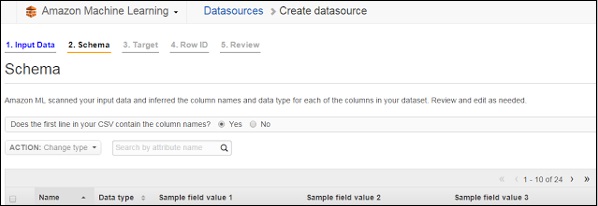
Step 5 − In Target section, reselect the variables selected in Schema section and proceed to the next step.

Step 6 − Leave the values as default in Row ID section and proceed to the Review section. Verify the details and click the Continue button.
Following are some screenshots of Machine Learning services.
Data Set Created by Machine Learning
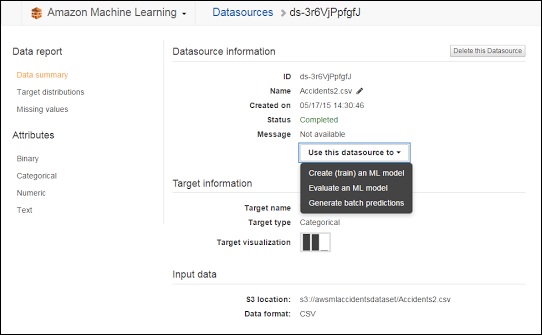
Summary Made by Machine Learning
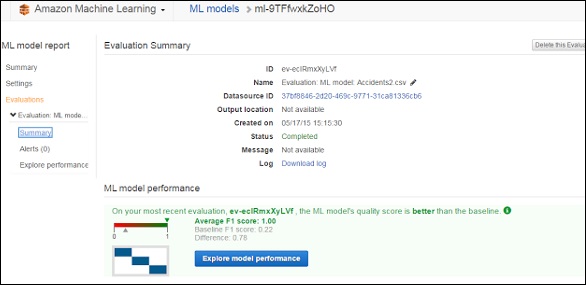
Exploring Performance Using Machine Learning
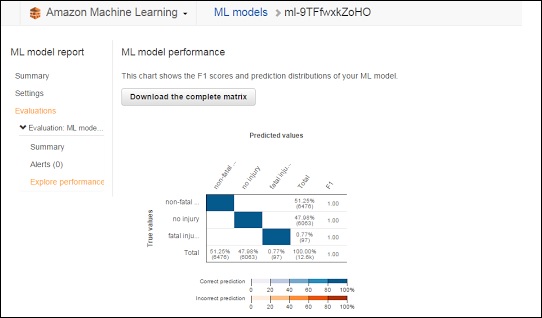
Features of Amazon Machine Learning
Easy to create machine learning models − It is easy to create ML models from data stored in Amazon S3, Amazon Redshift, Amazon RDS and query these models for predictions by using Amazon ML APIs and wizards.
High performance − Amazon ML prediction APIs can be used further to generate billions of predictions for the applications. We can use them within interactive web, mobile, or desktop applications.
Cost-efficient − Pay only for what we use without any setup charges and no upfront commitments.






















